#cinema: english
Text
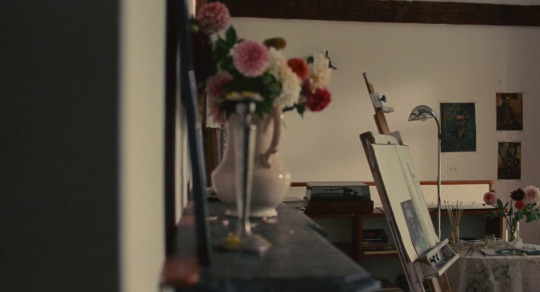
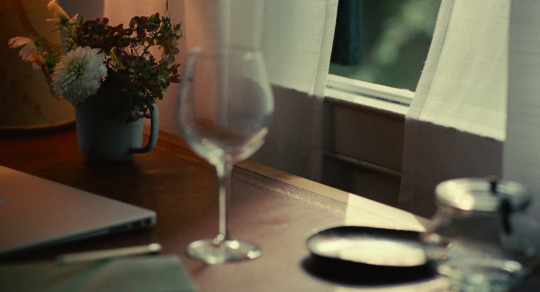


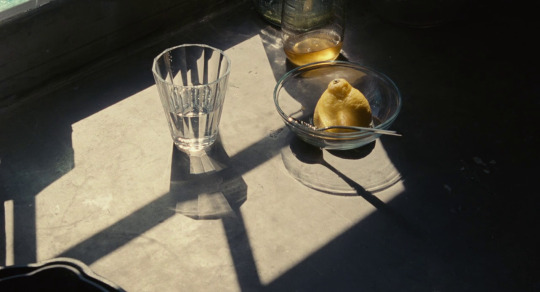
Past Lives (2023)
Dir. Celine Song
Language: Korean, English
#past lives#2023#english#korean#celine song#greta lee#teo yoo#john magaro#korean cinema#female directors#movie screenshots#movie screencaps#film screencaps#cinema#film screenshots#cinematography: shabier kirchner
7K notes
·
View notes
Text
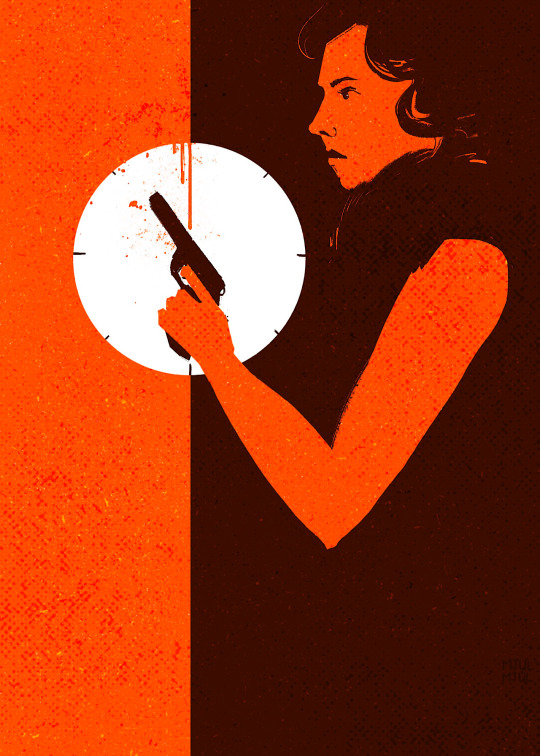
OUT OF TIME
#artists on tumblr#cinema#goncharov#katya#illustration#love how martin scorsese kept clocks in frame to show these characters are all running out of time#digital art#with a hat nod to saul bass#unreality#<— the goncharov movie doesn’t actually exist it’s a bit everyone is doing#anyway I love noir stuff! this was fun lmao#also Marlowe sorry for recycling your caption I discovered too late that English has NO other good idioms for it#was working off the idea of 'the 11th hour' but that felt too on the nose to put as caption too. i take my shitposting seriously
10K notes
·
View notes
Text
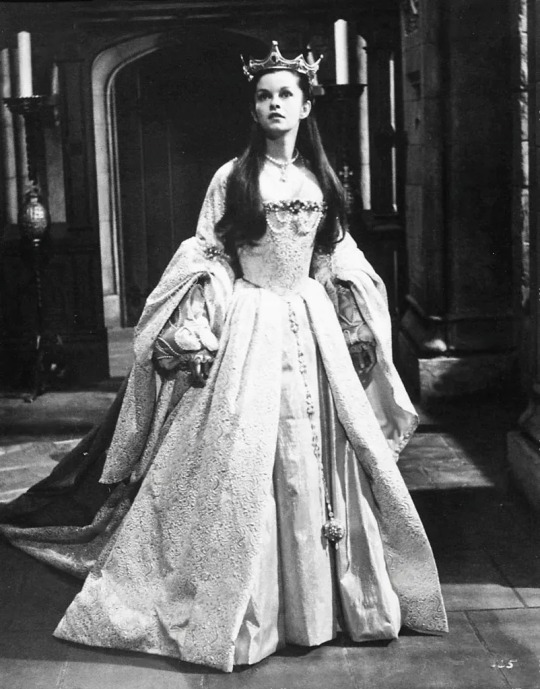
Genevieve Bujold as Anne Boleyn in Anne of the Thousand Days
#anne boleyn#queen anne boleyn#anne of the thousand days#genevieve bujold#tudor history#henry viii#the tudors#english history#tudor era#tudor period#tudor dynasty#tudor england#tudor rose#house of tudor#vintage movies#vintage films#1960s cinema#1960s movies#period film#period drama#costume drama#period piece#vintage
646 notes
·
View notes
Text
These 23 seconds of local news from central Italy have literally become my favorite movie therefore I gave it English captions so that it could be shared with the rest of the world
#cinema verité#italy#i took some liberties with the translation because the original speech was rambling a bit and i wasn’t sure about rendering it in english#without making overlong captions#the last phrase is also a bit creative because it’s obviously cut off in the original audio but. it was too funny to pass on#sometimes you find yourself in situations.
12K notes
·
View notes
Text
imagine the picture of dorian gray (1891) but dorian is jude law in wilde (1997) and lord henry is hugh grant in maurice (1987)




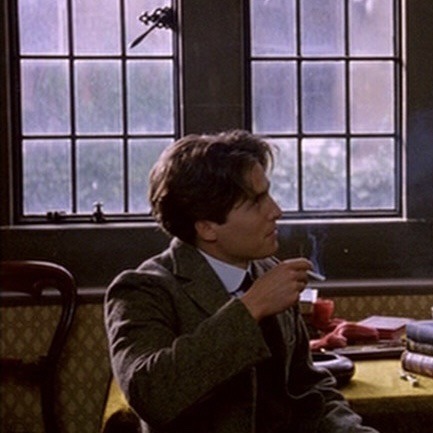

#henry is slightly older than dorian so the age gap is accurate just imagine hugh older than he was in maudice#maurice#wilde 1997#jude law#hugh grant#the picture of dorian gray#oscar wilde#dorian gray#lord henry wotton#aesthetic#cinema#literature#english literature#fancast#film#books#dorian#adaptation#dark academia
1K notes
·
View notes
Text




all time favourite movies:
portrait of a lady on fire (2019), dir. céline sciamma
#portrait of a lady on fire#celine sciamma#all time favourite#movies#mine#directed by women#non english speaking movies#lgbt cinema#favourite posts#NEON
768 notes
·
View notes
Text


I want to talk about duras (2021)
#swann arlaud#french cinema#dark academia#light academia#darkacademism#dark acadamia aesthetic#spilled thoughts#literature quotes#coffeeandpoetry#love#english literature#book quotes
158 notes
·
View notes
Text
#i love languages so much#and like from the other languages ive learned#english seems to be an outlier for having a pronoun specifically for ungendered non-humans#remember seeing IT in cinema in Korea and i think they translated it 그것 as far as i remember#im too high to look it up
449 notes
·
View notes
Text
Dan and Phil, The Blair Witch Project, and taking back agency.
In their latest video, «DanAndPhilCRAFTS - Slime» Dan and Phil have made a very clear homage to the 1999 found footage film «The Blair Witch Project» directed by Daniel Myrick and Eduardo Sanchez. The movie tells a story about a group of students, who travel to a small town in order to film a documentary about a local legend. In the process of filming, however, they get lost in the woods and never make it out of there, being haunted and then presumably killed by the witch. In this essay I am going to analyze how the visual narrative is structured in both films in relation to one another, the way «Slime» differs from «Blair Witch» and how that difference conveys the shift in Dan and Phil’s public presence.
Let's start with imagery associated with the paranormal in both films. In Blair Witch one of the signs of the witch's presence become the "dolls" made out of sticks. They are filmed by the characters, who are naturally freaked out by the dolls appearing seemingly out of thin air, signaling the presence of the dangerous and inhuman Other.


Dolls are also used in Dan and Phil's video, the main difference being that the pair are not haunted by the paranormal and unexplainable Other, no, they willingly put the dolls there, they are taking active steps in bringing about their own doom.
While in «Blair Witch» the dolls are placed ominously in between tree branches, filmed from below to make them look like they’re floating above the camera, being forces of a power that the characters ought to be afraid of, in «Slime» the dolls are nailed to a steady surface at camera-level, and while they do provide an unnerving atmosphere, they are not a danger to the characters, at least not a danger they’re not aware of.
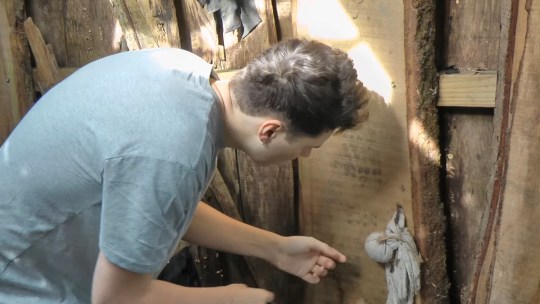
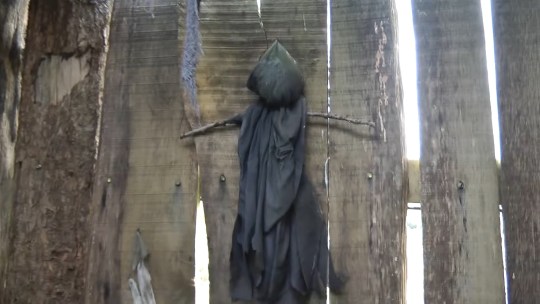
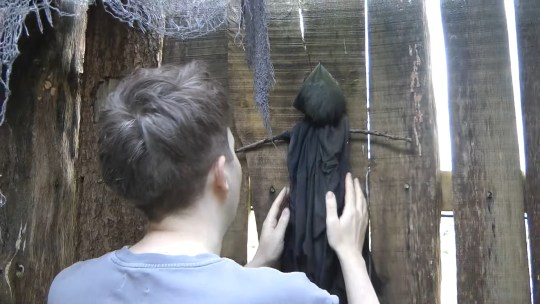
The same can be said for other "occult" imagery and artifacts. While in «Blair Witch» the characters finding strange symbols and even bloody remains in the forest strengthens the tension and suspense, signaling the close presence of the witch, in «Slime» all of the unnerving, "occult" and "satanic" exists under the characters' control. Dan draws the symbol on the wall himself, the animal skulls are presumably also brought in by the characters. Instead of being signs of danger, uncontrollable, they are merely tools in the hands of the pair.



The interior of the shack where the students meet their end in the 1999 film is filthy and decaying, which only strengthens the fear within the characters and us as the audience. It is filmed using close up shots which show the shack in it's decrepit and unnerving state. The shack that Dan and Phil's video is filmed in also seems abandoned from the interior, it is broken down, dark and dusty. However, instead of being mortified, like the characters of «Blair Witch», they occupy the space quite comfortably. Instead of being haunted by the building, they become the ones who haunt it, once again taking back control of their own demise. The interior is filmed at strange angles, almost reminiscent of German Expressionist films, in which the odd angles conveyed the detachment from reality and perpetual insanity, which in Dan and Phil's case could be used to depict the pair's descent into madness which leads them to their ritual.
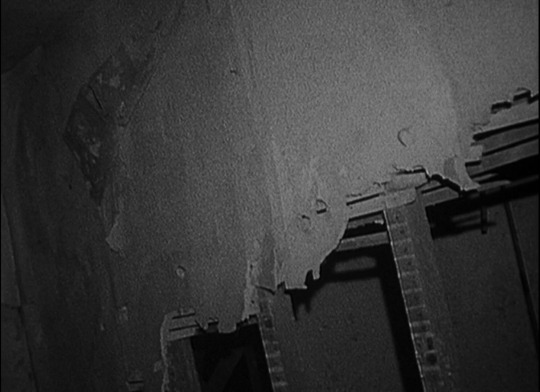
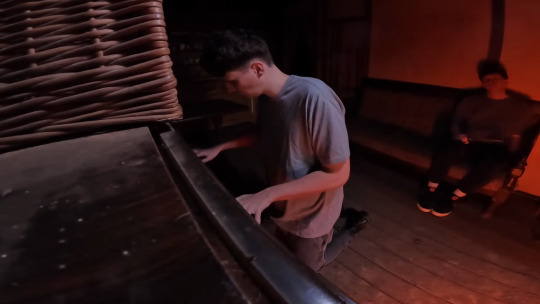
Nature plays a crucial role in «Blair Witch» as the witch herself is never shown. The characters are "surrounded" by the unnerving dark trees, which presumably hide the horror that is never allowed to be seen directly.
Dan and Phil make an obvious homage to that with their shots of the trees, however there is a major difference. While the shot is still desaturated and somewhat unnerving, the flowers on the tree are in bloom, symbolizing a new beginning and the hope that comes with it. The new "life" that is going to happen after the pair summons Baphomet.


In «Blair Witch» Heather's final message is a long shot filled with pure fear and desperation. Dan and Phil's shot mimicking it is almost unnecessary as it lasts only a few seconds, however in those few moments it manages to showcase the pair as a unit, they are calm and in the process of their ritual, determined to bring it to fruition. While Heather is left alone in the dark forest in which she will die, Dan and Phil are not alone: they are in this together, they are a team. If they die, it's because they chose to do so. "Creativity is nothing without friendship".


Now for the infamous "Blair Witching it in the corner". In this memorable scene from the 1999 film one of the students is stood in the corner facing the wall. Heather and the audience both know that, according to the Blair witch mythology, this position is a prelude to being killed, as that is how the murderer, who was persuaded by the witch, used to place his victims, for he couldn't bear to look them in the eyes. This face-to-the-wall position conveys pure helplessness at the hands of the persecutor. In «Slime» there is a scene that makes an obvious homage to the «Blair Witch» scene: Phil is stood in a dark corner of a room, the shot is in black and white. There is, however, a stark difference: Phil is facing the camera. With just this one change the scene no longer feels like a display of helplessness. Phil is looking straight at us, he is not a victim at the hands of unknown horrors, he is in control.


The way the "monster" is presented in both films differs significantly. A big part of the horror in «Blair Witch» is our inability to ever see the witch herself. The "monster" not being shown to the camera is a trope as old as low-budget horror: it helps build suspense and also hides the lack of budget. In «Blair Witch» the rapid movement of the camera also makes it feel like the horror is too great for a human mind to comprehend, too great to be caught on camera, Lovecraftian in nature.
The 1999 movie starts with the characters interviewing Blair locals, who tell the characters and us, the audience, the legend of the Blair witch. The witch was sentenced to death for practicing witchcraft, so she haunts those who try to disturb her peace. Here we can make the connection between those persecuted for "practicing witchcraft" aka being Other with being queer and being othered and, historically, persecuted for it.
This interpretation correlates well with the fact that the "monster", in this case the devil Baphomet, is present in «Slime». More than that, Dan and Phil actively seek him out. In the final scene of the short film, Baphomet has his arms around the pair, claiming them. The characters are willingly allying themselves with the Other. Dan and Phil see the "monster" and yet they do not run away, instead, they worship him. In the theme of reclaiming your agency, this could symbolize coming out, proudly and purposefully becoming part of the Other.
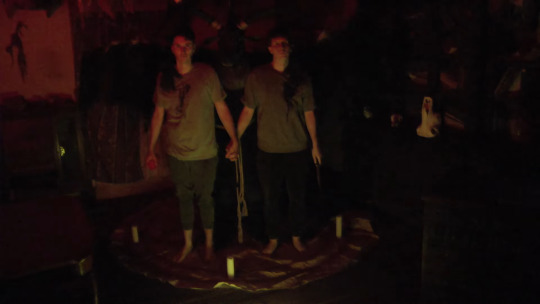
They are doomed from the start, but they are not helpless victims of the Other, scary and unknown, they are the ones bringing about their own doom. This is taking your agency back, and I feel like this narrative rhymes really well with Dan and Phil's current presence on the internet. While the early years of their careers were filled with public speculation and being stripped of their agency, something that "was just theirs" being scrutinized by the public, which definitely affected the way they had to behave, their current self-described "chaos era" is very different. They no longer make the effort to pretend to be anything they're not. They are the ones in control of the narrative, keeping their private life private, while also sharing way more openly and freely, knowing that we know and not really caring about the public's perception, as post coming out they have taken the power and agency back into their own hands.
#i cracked and wrote my own analysis#putting this under the cut cuz its long BUT IT HAS PICTURES PLEASE LOOK#sorryy if some phrasing is wonky or awkward haha i can't always tell what doesn't sound natural in english#there were a few more shots that were direct homages to specific blair witch shots but they dont differ much and idk what to say about thos#the beauty of experimental cinema specifically is how it can only mean as much as the viewer is willing to put into it#so by overanalyzing and creating our own meaning we're entering a dialogue with the film#we're a bunch of sick freaks who write essays for the love of the game huh#dan and phil#phan#<- for the bit
114 notes
·
View notes
Text
« Known globally for highly stylized genre films depicting the gritty underbelly of society with brutal violence and crimes, South Korean cinema was long characterized by what one film critic famously called “dark blue filter thrillers” mostly made by and starring men. If women appeared at all, it was often as one-dimensional clichés, serving as plot devices like a femme fatale, a murder or rape victim, an innocent lover or wife, or a self-sacrificing mother.
To challenge this norm and support women filmmakers, some women started to not only watch female-driven films but also buy more tickets than they could even use for such movies in a campaign called “spirit-sending”— meaning they would be at the theaters in spirit. The campaign turned a surefire box-office disaster to an award-winning hit, saving the career of a rare female director.
“It was truly a miracle,” Lee Ji-Won said of Miss Baek, her 2018 debut film about a female former convict trying to save a little girl from abusive parents. The drama, which portrays the friendship between two abuse survivors, was such a rarity in an industry dominated by what Lee called “films with cops, gangsters, naked women, or rom-coms” that it was snubbed by almost all investors and distributors. One investor promised to fund it only if Lee changed the lead character to a man. Another bet that “the disaster-in-waiting” would perish in cinemas in a week—a warning that almost materialized, as the film’s opening-day sales were so poor that it was projected to sell less than a quarter of the tickets required just to break even.
“Everybody, myself included, was so sure that the movie would crash and burn, and my career was over—until weird things started to happen on social media,” Lee told me.
Impressed by the rare women-led film with complex female characters, made by an even rarer woman director, many women watched it again and again, buying tickets even when they couldn’t attend. Ticket sales rebounded sharply as #SendingSpirit became a viral hashtag that continued for months until the film broke even. Miss Baek eventually won rave reviews and swept major awards, and the same investors who’d once snubbed Lee began to court her, begging to see her scripts.
“The gesture of solidarity by all these women was just overwhelming,” Lee said, wiping away tears. “They, like me, were so thirsty for movies portraying women as complex, multidimensional human beings.” In 2021, she finished shooting her second movie, featuring some of the country’s biggest stars.
The “spirit-sending” campaign lived on to drive the success of other
women-led movies, like the film adaptation of Kim Ji-Young, Born 1982, allowing such films to defy the boycott campaigns that often targeted “feminism-stained movies.” While the film was hit by thousands of 0 percent ratings even before its official release (causing a vast gender disparity in its ratings on the top web portal—2.99 among men and 9.45 among women), Kim Ji-Young eventually became a hit watched by millions at home. Female-driven movies have grown in numbers and ticket sales since, led by a new generation of filmmakers like Lee and some male filmmakers as well. »
— Hawon Jung, Flowers of Fire: The Inside Story of South Korea's Feminist Movement
108 notes
·
View notes
Text


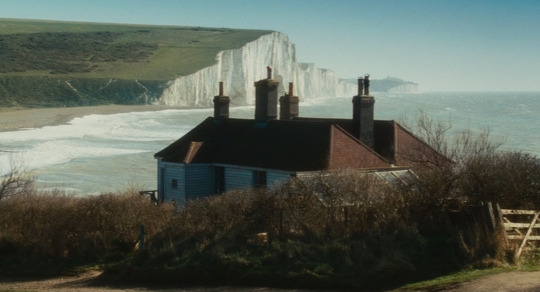
come back, come back to me
#james mcavoy#atonement#atonement 2007#seamus mcgarvey#joe wright#ian mcewan#english literature#historical drama#film stills#film edit#romanticism#film#cinematography#cinema#period drama#cuckmere haven#keira knightley
72 notes
·
View notes
Text
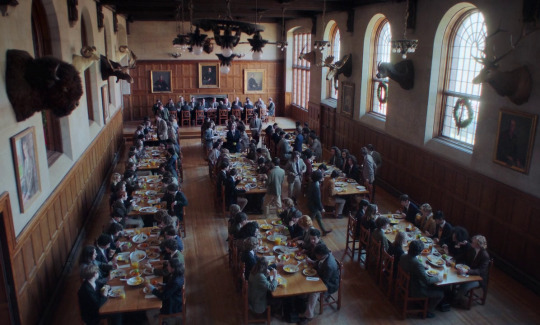

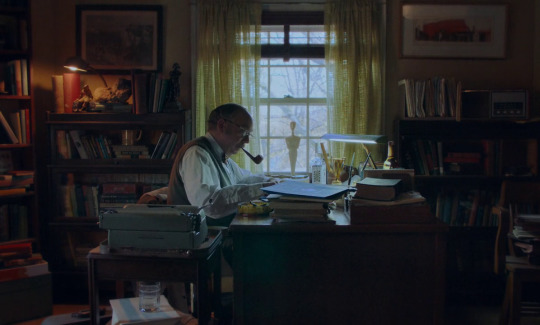
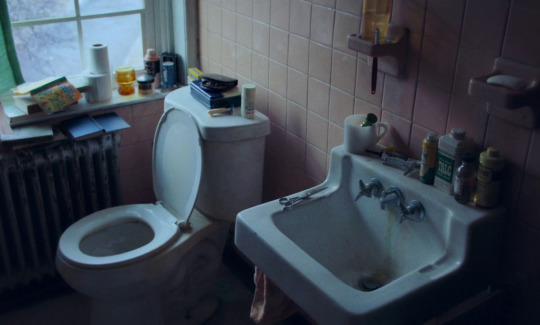
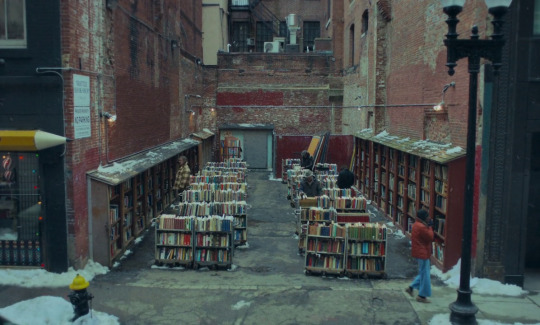

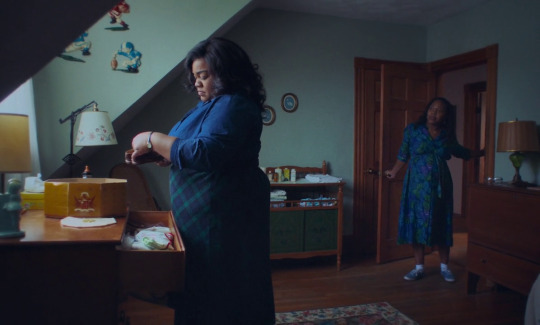
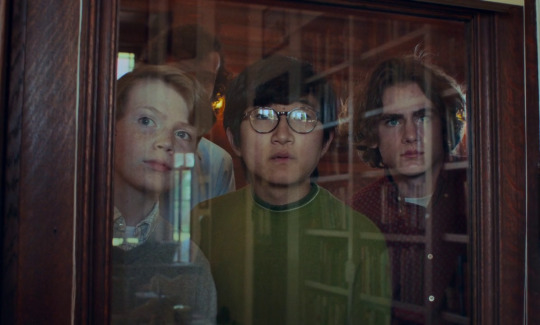

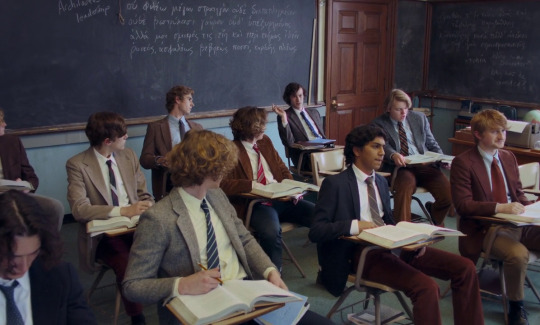


The Holdovers (2023)
Dir. Alexander Payne
Language: English
#the holdovers#2023#alexander payne#paul giamatti#da'vine joy randolph#dominic sessa#cinematographer: Eigil Bryld#beautiful beautiful beautiful#english#cinema#film#film screencaps#movie screenshots#screencaps
2K notes
·
View notes
Text



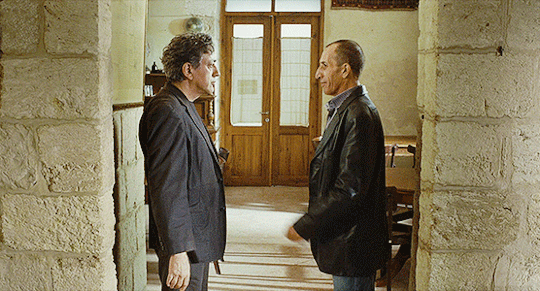

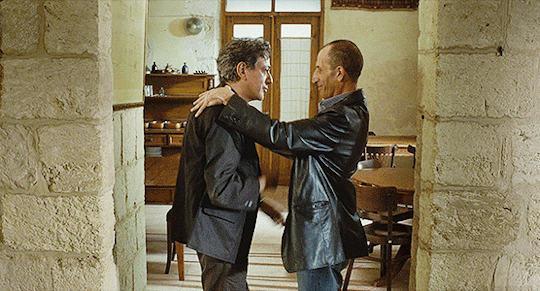

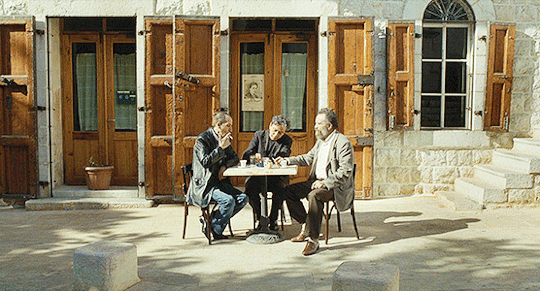
ES returns to Nazareth.
The Time That Remains (2009), dir. Elia Suleiman 🇵🇸
#the time that remains#one of the greatest movies ever made hands down#elia suleiman#lq with english subs on youtube#dailyworldcinema#filmgifs#filmedit#gifs#albertserra#filmtag#cinemasource#cinema!
65 notes
·
View notes
Text
Jet-Skiing through identity: a deep dive into Mobius M. Mobius (part 2) 🛥️
Even the kindest of hearts have a trigger point, a spot that can catch a bullet without bleeding; making it part of the heart's anatomy.

I'm only saying that because I associate Loki as Mobius's soft spot("I know you have a soft spot for broken things"), and Loki turning his back to that in s1e2 as the trigger point. Imagine you have that courage, to do something everyone around you thinks is wrong. Then, just as you were going to prove the opposite,our efforts turn to be in vain.
For Mobius's character, this means he has to turn around at 360, to where he came from; with inovative ideas not working, it all comes to accepting defeat.
He manages that excellently in front of Ravonna: caring more about reassuring her everything will work out rather than focusing on himself. Another example of how much Mobius cares about others, even when he should care more about himself.
Episode 4, season 1, is crucial for where Mobius's story is going.
We can see so many interesting things in his conversation with Loki, like the way he handles stress through amusement. Asif this emotion isn't worthy enough, but to be laughed at:

"You like her! Does she like you?"
After all, let's not forget Mobius was already (and even earlier than this episode) catching feelings for Loki. His own words put this straightforward: "Just kind of an asshole. And a bad friend". Notice how he doesn't use any word similr to "traitor". He still considers him a friend, albeit a bad one, after everything he's done. Mobius might do his best to hide it, but he's still forgiving deep down. And it's not even Loki's departure in time and space that matters the most to the analyst. It's his alliance with Sylvie, hinting once again at the jelaousy of his character I talked about in part 1. "It's ruining my reality right now!" in Mobius's words.
But when he is told by Loki that they're all variants, Mobius doesn't simply dissmiss the idea. He could, and should, given the position he is in. But the brightness of his mind, and that little flicker of hope he still has in his Loki makes the difference. After all, hope is what makes us believe: it's the desire of having something to believe in.
Watch his reaction when he is told all this:
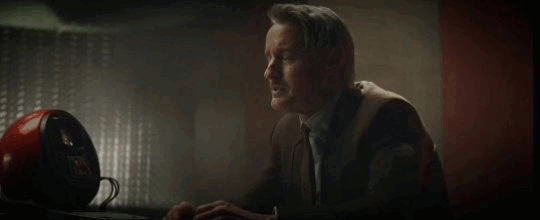
He is masking it flawlessly in front of Loki and the hunters, but that raising hope makes him search: is the trickster out of tricks for once? What if, all this time, that feeling he had inside himself but hid away is actually a sign, gently whispering to him there is more he should know about? That is a bravery so different from live action, and battling with superheroes: the bravery of discovery. Loki telling the truth means Mobius living a lie - a scary thought of course, but not scary enough to stop him.
This all drives Mobius to finding out what actually happened with hunter C-20. And the rest is history.
There is a certain honour in telling Loki he was right from the beginning. This new approach, this insight Mobius now gains over everything give him not only a rush of adrenaline, but also the confidence he didn't allow himself before. Therefore, he wasn't just working half a measure. The limits that were set were not part of his perimeter, but of the TVA's. Now that he sees that, he can also break those limits.
He is also free to speak his mind. And Loki is so deserving of these words that this scene right here is one of the most precious in the entire series. Their wonderful dinamc certainnly gives extra points to that.
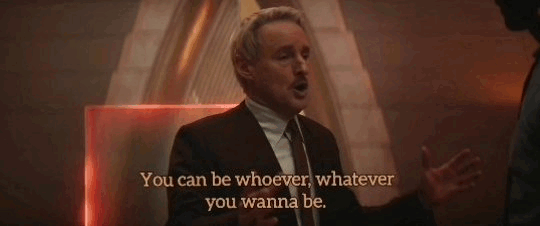
Now Mobius isn't just an analyst anymore. He is a rebel, betraying the only thing he believes in, the one institution that shaped his entire existence. This rebellion isn't just external, but internal as well. Ultimately, only one part of the internal conflict won, but the other still exist, like two sides of the same coin, spinning and spinning. But he still has the hope that he'll find something better on the other side, and doesn't stop just because it's a hard thing to do.
If it was easy, everyone would do it. (Loki in Thor The Dark World)
I wanted to write more but this is already getting too long (like damn I'm fangirling hard) so see you for part 3!
#if you liked this reblog so it can reach more people?#marvel#loki#lokius#character analysis#owen wilson#tom hiddleston#mobius#mobius my beloved#writing#writblr#variants#mcu#marvel fandom#comics#the tva#cinema#sorry if I did any mistakes English is not my first language#💛💚
73 notes
·
View notes
Text


jane in la piscine
#french film#french#classic film#classic cinema#60s#french girl#english girl#style#courreges#jane birkin
281 notes
·
View notes
Text
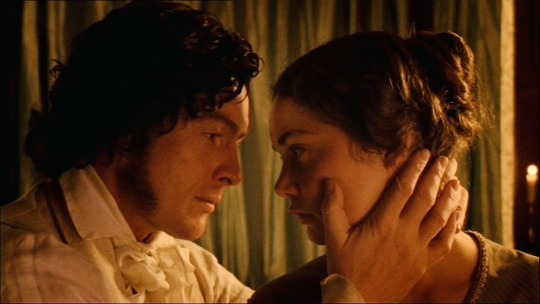

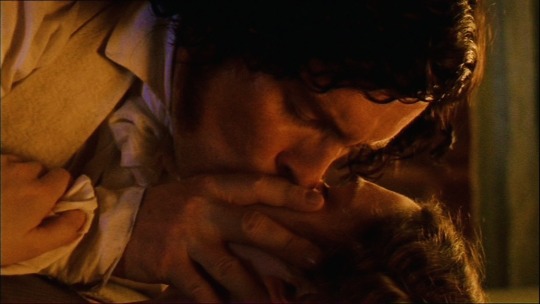
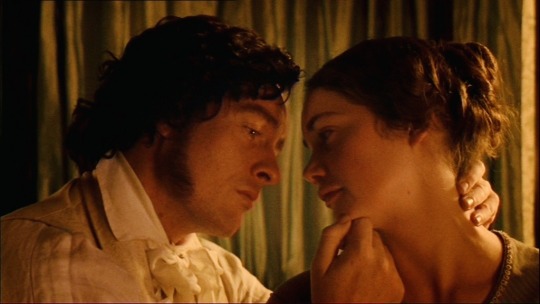
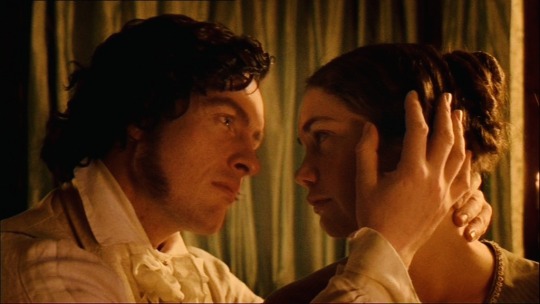
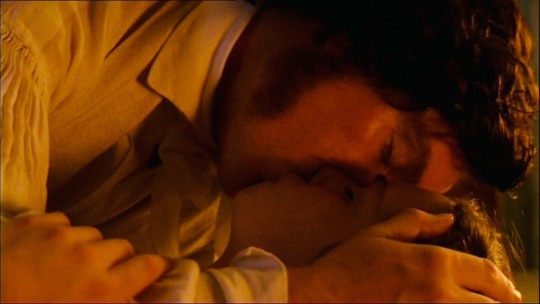
"Say you don't love me. I dare you. You cannot."
"I will not. I will love you until I die."
#this sequence chemically altered my brain#jane eyre 2006#jane eyre#charlotte brontë#quotes#screencap#period drama#literature#english literature#aesthetic#romance#cinema#ruth wilson#toby stephens#film#embarrassing#the bronte sisters
181 notes
·
View notes